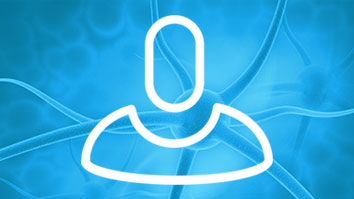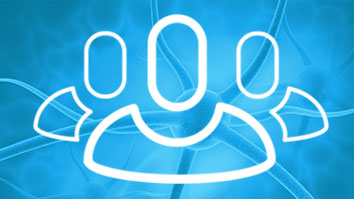underlying aMindfulness integrated Cognitive Behaviour Therapy
The Mindfulness Institute provides mindfulness training in a range of contexts face to face and online. Our approach is based on Mindfulness integrated Cognitive Behaviour Therapy (MiCBT), a transdiagnostic program developed by Dr Bruno Cayoun, a Tasmanian psychologist, author and researcher.
The MiCBT approach allows us to understand and therefore manage the way we attend to thoughts and emotions and teaches how to change our unhelful behaviours.
We offer regular group MiCBT programs live on line as well as providing individual therapy that is informed by and teaches the skills and tools in MiCBT to those who may have depression, anxiety, stress, attention issues, anger issues, post traumatic stress, bipolar disorder, pain management, relationship issues. MiCBT enables people to apply mindfulness-based skills to daily life to change unhelpful behaviours and improve well-being and resilience. We also provide mindfulness programs in organisational settings. Our email is contact@nullmelbournemindfulness.com

The Mindfulness Institute offers therapy and training to individuals and to groups.
We also provide a range of ongoing support services to help people to maintain their mindfulness skills and sustain well-being.
Training, therapy and group mindfulness sessions

Individual Therapy
- Anxiety disorders: generalised anxiety, social anxiety, OCD
- Mood disorders: depression, bipolar affective disorder
- Trauma: traumatic stress and PTSD
- Substance use disorders
- Work stress
- Relationships: family; partner; workplace
- Life transitions: transitions in work; transitions to parenthood; end of career transitions
- We provide training in MiCBT for individual clients - typically this takes 8-10 weeks but may take longer depending on the complexity and severity of the problems. Medicare rebates are available for those with medical referral. To discuss your needs do give us a call.

Group Training
MiCBT groups are offered throughout the year.A group program is 8 weeks in duration and requires commitment to daily mindfulness meditation practice (we strongly recommend twice daily during the program) and to attending the weekly two hour classes. We have been running groups since 2009 and the feedback is always very positive. Our recent research confirmed the effectiveness of the group based program. that the program enables significant change.

Ongoing Support
Consolidating one’s mindfulness meditation practice can be extremely useful. We offer free live online meditation session three times each week.
Director

Dr Sarah Francis PhD., Grad Dip. MiCBT., MAPS.
Director of Melborune Mindfulness Institute
Sarah is a registered psychologist trained and experienced in mindfulness theory and practice. Sarah has worked as a teacher, human resources manager, general manager of learning and development, business consultant and is the author of “Workplace Communication: A Teacher’s Guide” (Pitman, 1993) and co-author of “The Clinical Handbook of Mindfulness-integrated Cognitive Behavior Therapy”, Cayoun, Francis and Shires, Wiley, 2018.
Sarah has trained in a variety of mindfulness-based approaches and prefers to work with MiCBT’s integration of traditional mindfulness skills with contemporary cognitive and behaviour therapies. She regularly delivers the training in MiCBT for professionals as part of the MiCBT Institute. Sarah has conducted research into the measurement of mindfulness and on the effectiveness of MiCBT in group format with a range of mental health conditions (Frontiers in Psychiatry, 2022)
Sarah uses MiCBT in her therapy with individuals as well as regularly conducting group MiCBT training programs for depression, anxiety and stress, and well-being. Sarah also conducts mindfulness training and supervision for health professionals, post-graduate students and corporate groups. Sarah is the convenor of a peer supervision group (Melbourne MiCBT Interest and Research Group). Having attended many Buddhist courses, teachings and retreats for over 25 years, Sarah is skilled in integrating key aspects of eastern and western psychology.
Associates

Stephanie Chu
Stephanie is a registered psychologist with 12-years experience in private practice. Stephanie recently joined the Mindfulness Institute and brings her experience working with culturally diverse clients. She conducts therapy using English, French and Creole. Her focus using MiCBT has proven beneficial for adolescents and adults with a wide range of issues, including depression, anxiety disorders, chronic pain, and post-traumatic stress disorder. Stephanie has also facilitated a support group called Vision of Hope which helps families to understand and manage the effects of drugs and alcohol on their loved ones. Stephanie has many years of experienced working with Workcover, TAC, and Victim of Crime patients.

Boyd Cowley M.A. Psych. MAPS., Grad. Dip. In MiCBT
Boyd is a registered psychologist with many years experience working at schools and in private practice. At the Mindfulness Institute, Boyd works with all age groups and specialises in providing therapy for children, adolescents and parents, covering a wide range of issues, including depression, anxiety disorders, ADHD, chronic pain, behavioural difficulties, self-harm and bullying. In addition, he is a facilitator at Melbourne Insight Meditation.
Inside the brain. Concept of neurons and nervous system. Two neurons transmitting information.
There has been a huge increase in the amount of research into Mindfulness-based therapies – with fewer than 20 papers published by 1992 and by 16,581 by 2021. Researchers have studied the effectiveness of Mindfulness-based interventions, how to measure the outcomes of learning mindfulness and what happens in the brains of those who practice mindfulness meditation.
This is a very exciting period in psychological therapies which not only address mental health but are also moving developing resilience and thriving.
Research has shown benefits of mindfulness-based interventions for a range of problems:
- chronic pain and psoriasis, (Kabat-Zinn, 1982, 1984 1985, 1986,1998)
- cancer (Campbell et al., 2012, Smith et al., 2004, Speca, 2000)
- diabetes (Van Son, 2011, Sohrabi et al 2020)
- substance abuse (Chiesa & Serretti, 2013, Alfonso et al, 2011)
- anxiety (Roemer & Orsillo, 2002, 2009)
- eating disorders (Kristeller & Hasllett, 1999, Kristeller, 2003, 2013)
- relationship enhancement (Carson, 2004)
- depression (Galante, 2012)
- functional relationships in families (Bogels and Emerson, 2019)
- chronic pain (Cayoun, Simmons & Shires, 2020)
- sleep quality, anxiety and fatigue in multiple sclerosis (Pouyanfard et al, 2019)
- perinatal depression (Wang et al., 2021)
- MiCBT for anxiety, stress and depression (Francis 2022)
Research into brain changes with Mindfulness meditation
Various areas of the brain have been shown to be impacted by mindfulness meditation; for example:
- brain regions for attention, interoception and sensory processing including the prefrontal cortex and the right anterior insula were found to be thicker in long-term meditators than in non-meditators (Lazar, 2005).
- decreases in amygdala grey matter density were reported after an 8-week mindfulness intervention (Holzel et al., 2010).
- changes in stress were associated with decreases in right basolateral amygdala gray matter density (Holzel et al., 2010).
- increased gray matter changes in the left hippocampus, posterior cingulate cortex, temporoparietal junction and the cerebellum following 8-week MBSR program (Holzel et al., 2011).
- impact on the hippocampal area in a study comparing highly experienced meditators with a control group (Luders et al. 2013).
- Mindfulness-based interventions associated with increased insular cortex activity impacting awareness of internal reactions ‘in-the-moment’. (Young et al, 2018).
- EEG study with meditators indicating that meditation is associated with increased integration of brain networks and this may underpin beneficial effects including improved cognition (Lutterveld et al., 2017)
